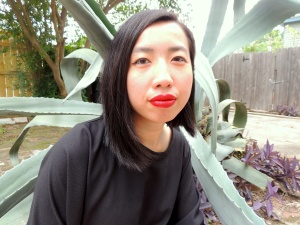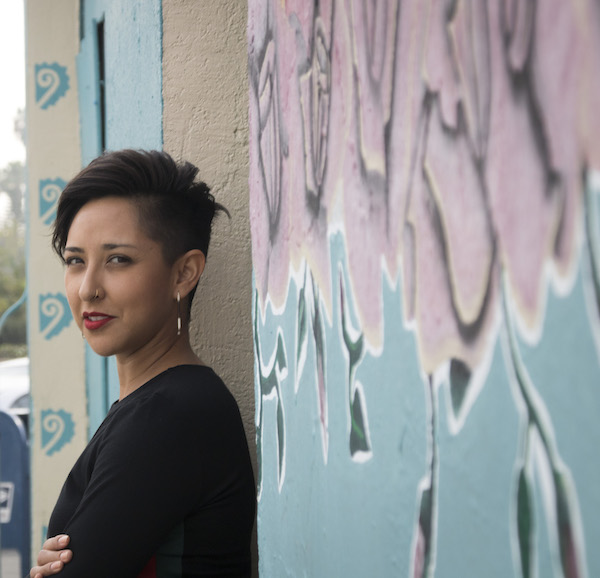
Durga Press, 86 pages
Reviewed by Muriel Leung
“tell me how to root in sentence form, to distinguish pain from sacrifice
::
tell me where to dissolve”
–excerpt from Mg Roberts’ not so, sea
For Mg Roberts in her wildly emotive first book not so, sea, poetry is an attempt to reconcile a messy story of origin. On the one hand, origin is scripted by geographical traversal as the speaker emigrates from the Philippines. However, geography in terms of nation and borders is just one narrative strain. For Roberts, geography is not only the stuff of maps but also the textured landscape of place, the angled hurt of memory, and the indefatigable strength of the mothering body that endures birth, death, and everything in between.
It is why the text within not so, sea appears in the form of non-linear narrative and fragments parsed by white space. Fragmentation is necessary to construct this particular narrative of origin. It disrupts a linear and hegemonic narrative that privileges order and coherency. For Roberts, these fragments are jagged shards that begin with a “cut” in the book’s cinematic opening in which the speaker watches the story of her birth through performative distance. The cut at once signifies the cutting of an umbilical cord as well as the filmic technique of moving from shot to shot. Though these gestures may seem like discordant parts, they are assembled together to forge a new meaning.
This undulating movement between distance and longing characterizes the tonal complexity of the book’s fragments. In between birth and death, there is the narrative of a rich intergenerational history between women—the speaker, her mother, her grandmother, and her daughter as well. There is also the militarization of Asian countries that include the Philippines and Vietnam as well as the violent forces of racism in the speaker’s everyday encounters in the U.S. Frequently torn between spaces and time, the speaker forces herself to engage with what is most difficult in order to better comprehend her own history. She self-flagellates by watching post-Vietnam War action movies “to be closer to” an unnamed American G.I. that she addresses in a letter whose only distinction is by the number one. She ruminates on the Barbie Doll’s proportions and the expectations the toy’s measurements have placed upon young girls, particularly for the speaker’s daughter. In each turn, the speaker attempts to grow closer to violence as a way of touching it—which is a unique way of attempting to know it and master it in the hopes that she could uncover something in return that might make the future safe for her and her children.
not so, sea is a brightly dappled landscape of a text that matches its moments of clinical removal with floods of unrestrained mourn. Despite that grief, it is also a text of hope. In the lines from which Roberts draws for the book’s title, she writes, “Perched on this location, bowed against this site and elsewhere—not so, sea./ Pages turn creating distance. I must retell myself until I can see us in color.” The site that she names is non-specific but the syntactical obfuscation of the phrase “not so, sea” tells us that the sea can be both object and figure of address. The multiplicity of meaning here in the physical landscape is very much a marker of the potential of text. The process of “retell[ing]” though it may be bleak and terrifying, it is also necessary. It needs to be said because the alternative of silence also cuts. But this act of retelling is powerful for it names a distinct suffering marked by the perpetual sense of transiency and distance after immigration, removal of one’s innate sensibilities through the damaging effects of colonialism, racism and misogyny, and the cultural and familial demands in response to all this discord. Though there is a palpable fear of how this suffering will be passed down to a future generation, Roberts offers this generosity—an inheritance of pain is not without the fortitude to persist in spite of it.
***

Muriel Leung
Muriel Leung is a multimedia poet and former teaching artist from Queens, NY. Her poetry and essays can be found or is forthcoming in Coconut, TENDE RLOIN, Bone Bouquet, Dark Phrases, and RE/VISIONIST. She is a recipient of a Kundiman fellowship. Currently, she is a MFA candidate in poetry at Louisiana State University where she also serves as the Assistant Editor of New Delta Review.














